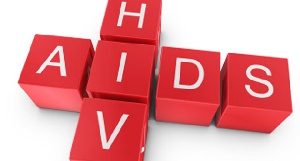Ghana has been named as the first country in the Sub-Saharan Africa to have made considerable progress in reducing the prevalence of HIV under the Millennium Development Goals (MDGs) which ended in 2015.
This was stated in a release from the Office of Resident Coordinator of the United Nations (UN), which outlined a report on the implementation of the United Nations Development Assistance Framework (UNDAF).
The release added that “Ghana has been a strong partner of the UN through its leadership in the consultation process to develop the Sustainable Development Agenda 2030, and in the fight against Ebola by hosting the UN Mission for Ebola Emergency Response to support the affected countries in West Africa in 2014 and 2015.”
According to the statement, UN’s support in Ghana took many forms and shapes ranging from making available global expertise and adopting good practices to national needs.
Ghana, the report went on to say, was able to reduce extreme poverty by half in relation to the Millennium Development Goals (MDGs) initiative.
The report also touched on how the UN was contributing to agricultural modernisation, food security and nutrition, environmental sustainability, water and sanitation, expanding effective public social services to reach the marginalised and institutional capacity for good governance.
The release said the UN Country’s Team counted on strong partnerships in completing the implementation of the 2012-2017 UNDAF and developing its successor, the strategic framework for UN work 2018-2021.
This framework, according to the statement, was expected to focus support on localising and implementing the Sustainable Development Goals through Ghana’s national development plans, the release indicated.
General News of Thursday, 3 November 2016
Source: todaygh.com
Ghana first country to reduce HIV prevalence in Sub-Saharan Africa - UN Report
Entertainment
















